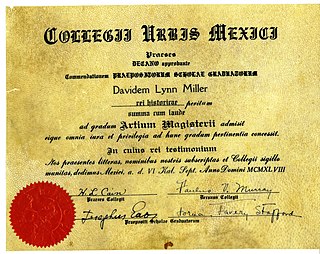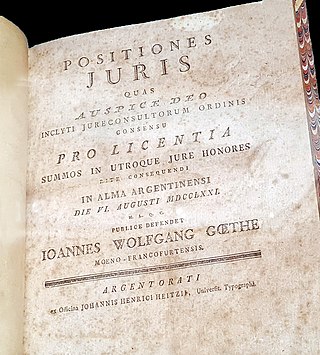This article needs additional citations for verification .(February 2024) |
The Certificate in Education (Cert Ed) is a professional qualification for teachers in the United Kingdom. There have been two incarnations of the Cert Ed over the years.
This article needs additional citations for verification .(February 2024) |
The Certificate in Education (Cert Ed) is a professional qualification for teachers in the United Kingdom. There have been two incarnations of the Cert Ed over the years.
The current Cert Ed is a non-compulsory qualification offering training in teaching at further or higher education level.
Those wanting to teach at primary or secondary education must undertake either a Bachelor of Education or a Bachelor of Arts degree, such as a BA (Hons) Primary Education, or Bachelor of Science (in a relevant Education course) degree or a non-education degree followed by a postgraduate qualification in teaching, such as the PGCE.
In 2007, many colleges and Universities stopped teaching the Cert Ed with the advent of the newer Teaching Awards, the Diploma in Teaching in the Lifelong Learning Sector (DTLLS) replacing the full Cert Ed.
The old Cert Ed was a qualification required by teachers, obtained after three years of study at a College of Education. At the end of this period students could complete a fourth year in order to gain a BEd (Hons) degree, although only a minority chose to do so. [1] The Cert Ed was discontinued in the early 1980s when the law required all trainee teachers to train via graduate or post-graduate courses.

Postgraduate education, graduate education, or graduate school consists of academic or professional degrees, certificates, diplomas, or other qualifications usually pursued by post-secondary students who have earned an undergraduate (bachelor's) degree.
An academic degree is a qualification awarded to a student upon successful completion of a course of study in higher education, usually at a college or university. These institutions often offer degrees at various levels, usually divided into undergraduate and postgraduate degrees. The most common undergraduate degree is the bachelor's degree, although some educational systems offer lower-level undergraduate degrees such as associate and foundation degrees. Common postgraduate degrees include engineer's degrees, master's degrees and doctorates.
A bachelor's degree or baccalaureate is an undergraduate degree awarded by colleges and universities upon completion of a course of study lasting three to six years. The two most common bachelor's degrees are the Bachelor of Arts (BA) and the Bachelor of Science. In some institutions and educational systems, certain bachelor's degrees can only be taken as graduate or postgraduate educations after a first degree has been completed, although more commonly the successful completion of a bachelor's degree is a prerequisite for further courses such as a master's or a doctorate.
A Bachelor of Education is an undergraduate academic degree which prepares students for work as a teacher in schools. A Bachelor of Education program typically lasts three to four years and combines both coursework and practical experience in educational settings. The curriculum is designed to provide foundational knowledge in pedagogy, educational psychology, teaching methodologies, and subject-specific training. Graduates of this program are equipped with the skills necessary to foster a supportive and effective learning environment for their students.

A diploma is a document awarded by an educational institution testifying the recipient has graduated by successfully completing their courses of studies. Historically, it has also referred to a charter or official document of diplomacy.
A graduate diploma is generally a qualification taken after completion of a first degree, although the level of study varies in different countries from being at the same level as the final year of a bachelor's degree to being at a level between a master's degree and a doctorate. In some countries the graduate diploma and postgraduate diploma are synonymous, while in others the postgraduate diploma is a higher qualification.
A postgraduate diploma is a postgraduate qualification awarded after a university degree, which supplements the original degree and awards them with a graduate diploma. Countries that award postgraduate diplomas include but are not limited to Bangladesh, Barbados, Belgium, Brazil, Canada, Chile, Colombia, Germany, Hong Kong, Jamaica, Spain, Kenya, South Africa, Sudan, India, Israel, Ireland, the Netherlands, New Zealand, Nigeria, Republic of Panama the Philippines, Portugal, Russia, Pakistan, Poland, Saudi Arabia, Singapore, Sweden, the United Kingdom, Sri Lanka, Trinidad and Tobago and Zimbabwe. Level of education and recognition differ per issuing country.

A licentiate is an academic degree present in many countries, representing different educational levels. It may be similar to a master's degree when issued by pontifical universities and other universities in Europe, Latin America, and Syria.
The Postgraduate Certificate in Education (PGCE/PGCertEd) is a one- or two-year higher education course in England, Wales and Northern Ireland which provides training in order to allow graduates to become teachers within maintained schools. In England, there are two routes available to gaining a PGCE – either on a traditional university-led teacher training course or school-led teacher training.
The Diploma of Education, often abbreviated to DipEd or GradDipEd, is a postgraduate qualification offered in many Commonwealth countries including Australia, Sri Lanka, New Zealand, and the United Kingdom.

The Australian Qualifications Framework (AQF) specifies the standards for educational qualifications in Australia. It is administered nationally by the Australian Government's Department of Industry, with oversight from the States and Territories, through the Standing Council of Tertiary Education Skills and Employment. While the AQF specifies the standards, education and training organisations are authorised by accrediting authorities to issue a qualification.
The specialist degree is an academic degree conferred by a college or university. The degree is formatted differently worldwide and may be either a five-year program or a doctoral level graduate program that occurs after a master's degree but before a doctoral degree.

The Faculty of Education at the Queen's University at Kingston in Canada was founded in 1907. Over 23,000 teachers and education professionals have graduated from the Faculty since 1907. The Faculty is located at Duncan McArthur Hall, an integrated educational complex that provides teaching and learning facilities, support services, and administrative offices under one roof on West Campus.
A postgraduate certificate (abbreviated as PGCert, PG Cert or PGC is a postgraduate qualification at the level of a master's degree.

An academic certificate or tech certificate is a document that certifies that a person has received specific education or has passed a test or series of tests.

A certified teacher is an educator who has earned credentials from an authoritative source, such as the government, a higher education institution or a private body or source. This teacher qualification gives a teacher authorization to teach and grade in pre-schools, primary or secondary education in countries, schools, content areas or curricula where authorization is required. While many authorizing entities require student teaching experience before earning teacher certification, routes vary from country to country.
Teaching in Victoria, Australia is regulated by the Victorian Institute of Teaching, through the Department of Education and Training (DET), which is part of the State Government. The DEECD is biggest operator of schools in the state, and along with the independent and Catholic school systems have an interest in teaching as the operator of schools and employer of teachers.
A graduate certificate is an educational credential representing completion of specialized training at the college or university level. A graduate certificate can be awarded by universities upon completion of certain coursework indicating mastering of a specific subject area. Graduate certificates represent training at different levels in different countries, for example a graduate certificate is at master's degree level in Ireland, but is at a bachelor's degree level in the United Kingdom. In both cases, the graduate certificate represents less work than a degree at the same level.
Alternative pathways in education are alternative means of obtaining educational qualifications, other than the traditional means of gaining access to or completing the required study to obtain the educational qualifications.
Post-secondary qualifications are qualifications typically studied for after successful completion of secondary school. In Mauritius, this is usually after successful completion of the Higher School Certificate or its equivalent, although select qualifications may permit early school leaving or require additional study. A variety of different post-secondary qualifications are offered in Mauritius.